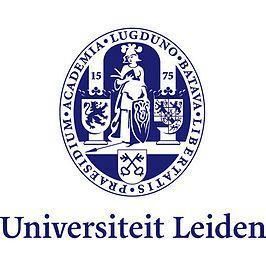Software engineer
Description:
Research Project "Developing a virtual emotion training tool using machine-learning, emotion recognition and heart rate”
Humans’ capacity to express, recognize and share emotions enables them to navigate their social worlds and forms a core component of what it means to be socially competent and healthy. Emotional expressions have received much attention in the literature and in training applications. However, the focus has been on explicit, acted, prototypical facial expressions of the type rarely seen in daily life. Teaching people to recognize subtle, real-world expressions will help them understand others better. The aim of this project is to develop an interactive training tool for a broad group of users, including people with autism. They could benefit from online help as a first step to practicing social skills in a safe home environment, without the presence of others, at their own pace.
Key Responsibilities
The main task of the programmer is to design and develop the training tool. The eventual product and its features should be valuable for a broad range of people, easy to use and of the highest level of craft and execution. The environment should be statistically programmed, and the machine-learning and algorithms behind the virtual characters’ expressions and the emotion recognition skills should safeguard the program’s ecological validity, making real-life impact feasible. The program takes users facial expressions and physiological signals such as heart rate into account and the program gets better through machine learning.
The candidate should take lead in coordinating the project and its team members (RAs, a psychiatrist, data privacy officer, legal advisor and business developer) closely collaborate with the technical team of Leiden university and all other involved parties and experts.
Other tasks
- (Assist in) writing up the results in international peer-reviewed journals;
- seek new collaboration partners that would benefit the project and its potential impact;
- ERC-grant-related administration (e.g. progress reports).
Selection Criteria
- Experience in the field of computer science, psychology or related field;
- Experience in VR development tools such as Unity;
- Being able to program interactive virtual worlds and agents on either phone or computer e.g. by using machine learning;
- Improving emotional face recognition software to include real expressions of emotion;
- Being able to take lead in the technical development of the tool including considering ethical and data privacy matters (in consultation and close collaboration with the privacy officer).
Preferred
- Prior interactions or role in academic projects, including holding a PhD is a plus;
- Experience with psychophysiological and eyetracking methods would benefit the project;
- Affinity with psychology and specifically the topic of emotion;
- Experience working in interdisciplinary teams with different parties involved.
Our Lab/Institute/Faculty
This project is supported by an ERC POC grant to Prof.dr. Mariska Kret and will run in parallel with ongoing projects in the CoPAN lab, directed by Kret (www.mariskakret.com; see the Copan Leiden Facebook page and Twitter). The lab consists of several postdocs and PhD students from various nationalities, all working on emotion and social cognition or related themes from different angles (studies in clinical populations and captive great apes).
The Institute of Psychology comprises six units (teaching + research): Health, Medical and Neuropsychology, Clinical Psychology, Cognitive Psychology, Developmental and Educational Psychology, Social and Organizational Psychology, and Methodology and Statistics. The Institute of Psychology offers a stimulating environment that promotes collaboration within and between units and faculties (e.g. computer science). For more information, see https://www.fsw.leidenuniv.nl/psychologie/
Leiden University’s Faculty of Social and Behavioural Sciences comprises five institutes: Political Science, Psychology, Education and Child Studies, Cultural Anthropology & Development Sociology and the Centre for Science and Technology Studies. The Faculty is home to 7,000 students and 1025 members of staff. Its teaching and research programmes cover diverse topics varying from adoption to political behaviour. For more information, see https://www.universiteitleiden.nl/en/social-behavioural-sciences.
Terms and conditions
We offer a fulltime fixed-term post for 1,5 years. The salary range is from € 3,974.- to € 5,439.- gross per month, depending on experience (pay scale 11, in accordance with the Collective Labour Agreement for Dutch Universities). Other constructions may discussed as well. For example, if a candidate has not all of the expertise that is required for creating this tool, we can consider to create two part-time positions. Preferred starting date: November 2023 (but this is negotiable).
Leiden University offers an attractive benefits package with an additional holiday bonus (8% of annual salary) and end-of-year bonus (8.3% of annual salary), training and career development. Our individual choices model gives you some freedom to assemble your own set of terms and conditions. Candidates from outside the Netherlands may be eligible for a substantial tax break. More at https://www.universiteitleiden.nl/en/working-at/job-application-procedure-and-employment-conditions.
Diversity
Diversity and inclusion are core values of Leiden University. Leiden University is committed to becoming an inclusive community which enables all students and staff to feel valued and respected and to develop their full potential. Diversity in experiences and perspectives enriches our teaching and strengthens our research. High quality teaching and research is inclusive.
Information
For questions, send an email to m.e.kret@fsw.leidenuniv.nl.
Applications
Applications (specifying the vacancy number), including a CV and at least two recommendation letters (and any additional documents such as a publication list) can be submitted through our website.
Receipt of your application will be confirmed by e-mail. If you have not received a confirmation within three days after submission, please contact us at +31 - 71 - 527 3427.
Enquiries from agencies are not appreciated.


